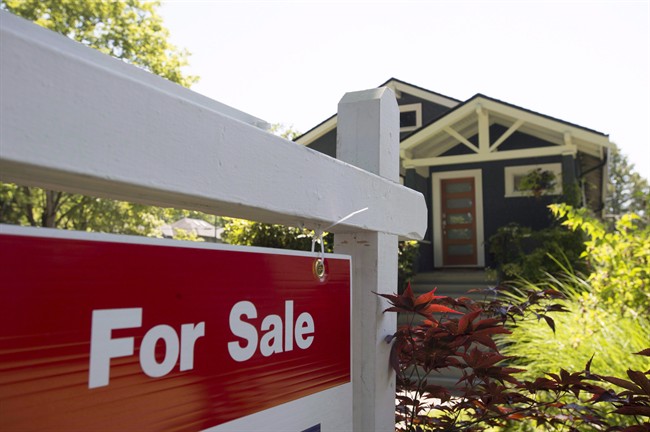The Canadian real estate market is on the verge of a massive bubble, warns a former Lehman Brothers executive, citing a struggling Canadian economy and high debt to income ratios.

Jared Dillian, a financial analyst based in the U.S., said in an interview with Mauldin Economics that Canada was approaching “extreme bubble territory” as evidenced by increasing home prices.
READ MORE: Is the Metro Vancouver real estate market in free fall?
“The average home price in all of Canada is over $500,000 and this is with the average income at $40,000,” Dillian told Mauldin Economics, a publisher for investment resources. “Debt to disposable income for consumers is 165 per cent which is much higher than it was in the U.S. at the top of our housing bubble.”
Dillian’s numbers match the facts. Statistics from The Canadian Real Estate Association (CREA) show the average Canadian home price was $480,743 for July 2016 up from $437,430 the year before. And the latest data from Statistics Canada shows the average Canadian employee makes just over $49,000 a year.
WATCH: Should Toronto follow Vancouver’s lead and tax foreign real estate investment?

Dillian said while there’s a perception high home prices are being driven by off-shore money, including Chinese foreign investors, this only represents about 10 per cent of the activity in Vancouver and Toronto.
READ MORE: Which province lost the most jobs in July?
Dillian also warned that the Canadian dollar, reeling from low oil prices, could fall to $1.60 or $1.70 against the US dollar. He added that shorting the Canadian dollar is “one of the best macro opportunities over the next couple of years.”
Is Canada’s red-hot housing market really approaching a bubble?
- ‘Beast Mode’: Former Canuck Ryan Kesler back in Vancouver for Game 2 vs. Nashville
- No Demko but plenty of spirit as fans prepare for Game 2 of Canucks playoff run
- Woman shares carjack nightmare: ‘I can’t believe this is happening in Victoria’
- Caught on video: B.C. firefighter survives hit-and-run outside his own home
The warning from Dillian, who worked for the financial services firm Lehman Brothers before it went bankrupt in 2008, comes on the heels of other warnings, including a June report from research firm Capital Economics that blamed increasing debt and high-risk mortgages for rising real estate.
And some governments have taken steps to cool the hot housing market. B.C. recently introduced a 15 per cent tax on foreign homebuyers in order to slow purchasing activity in areas like Metro Vancouver.
Early data from the Real Estate Board of Greater Vancouver suggest the tax is having the desired effect as home sales in Vancouver fell 51 per cent to 758 transactions in the first two weeks of August compared to the same period last year, according to Bloomberg.
READ MORE: Vancouver’s real estate is ‘fuelled by a money laundering bubble’: Market analyst
Economist Don Drummond with Queen’s University said the debt-to-income ratios and housing prices have been high-profile risks in Canada for “five years.”
“Obviously this has turned to some degree in the Alberta markets and the sales volumes have weakened in Vancouver, although prices haven’t come down yet,” said Drummond. “But other than Toronto and Vancouver home prices aren’t terribly out of whack in other places in Canada.”
Drummond said while shorting the Loonie is a legitimate position, he found it “puzzling” given low oil prices over the last year have already led to a lower dollar.
Short-selling occurs when an investor sells a stock he or she does not currently own and then buys the shares at a future date, hoping to make money if the stock’s value falls in the meantime.




Comments